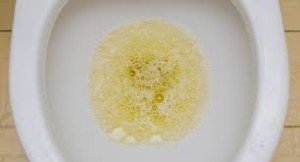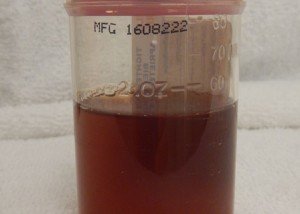
Ever had foamy urine?
There are several causes of foamy urine. Is cancer one of them?
If you’ve been noticing foamy urine and have been wondering if it might be a sign of cancer, worry no more; it is not.
However, this does not mean that foamy urine can’t be a sign of a serious medical problem.
What causes foamy urine?
“Foamy urine is caused by excessive protein in the urine, which can result from a person’s diet or kidney disease,” says Dr. Courtenay Moore, MD, a urologist with the Cleveland Clinic Health System.
“It can also occur while voiding rapidly, as foamy urine happens when urine mixes with air.”
When not to Worry
If it happens occasionally and isn’t progressing in terms of noticeability.
As Dr. Moore stated, foamy urine can result from rapid urination, which often occurs when you’ve been “holding it in” for a while and are very eager to let it all out once you’re sitting on the toilet seat.
In fact, more concentrated urine — the result of dehydration — may add to the foamy appearance.
You need not feel thirsty in order to be dehydrated, I might add.
If the symptom concerns you, make sure you drink plenty of fluids.
And void with more control, rather than hard pushing.
See if the bubbling or fizzing still persists.
When to Be Concerned
Now, if the symptom doesn’t go away even after you’ve restocked your body with fluids and have been voiding with less rapidity, this can signal the possibility of the excess protein, called proteinuria, in your urine.
This warrants further evaluation, as this can be a sign of a serious kidney ailment. However, it’s not necessarily a kidney disease.
If you have eaten ample amounts of certain foods, such as chicken, fish and other meats, this can cause the excess protein, as these foods contain muco-proteins.
The protein will end up in your excrement if your body is not efficiently breaking these proteins down.
These proteins then result in the foamy quality.
Cut back on these foods and see what happens. If the symptom persists, or, if in general you are just concerned about your observations, then seek a consultation with a urologist.
If your medical plan requires you first see a primary care physician, request a referral to see a urologist.
If kidney disease can be ruled out by the urologist, you’ll have peace of mind.
If the symptom persists despite the elimination of benign causes, your urologist will give you a urinalysis, which will detect any protein.
Further tests will then be given to find the cause.










































